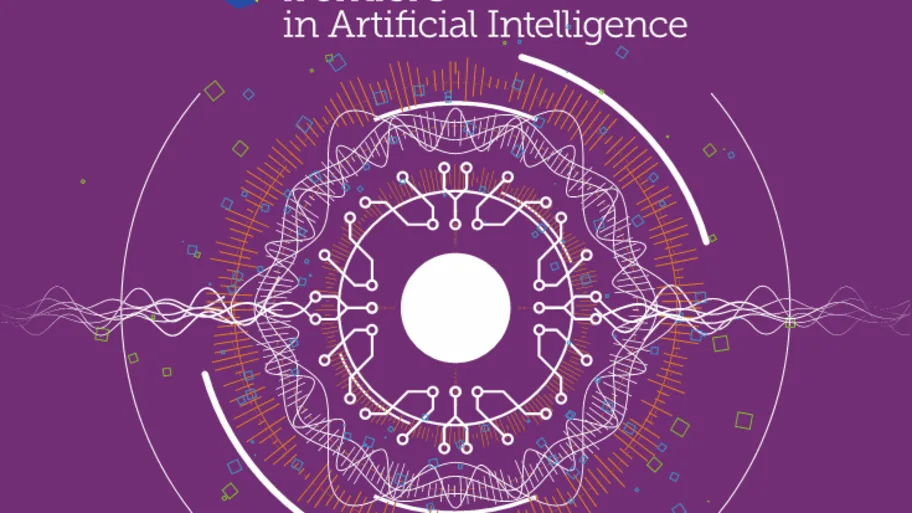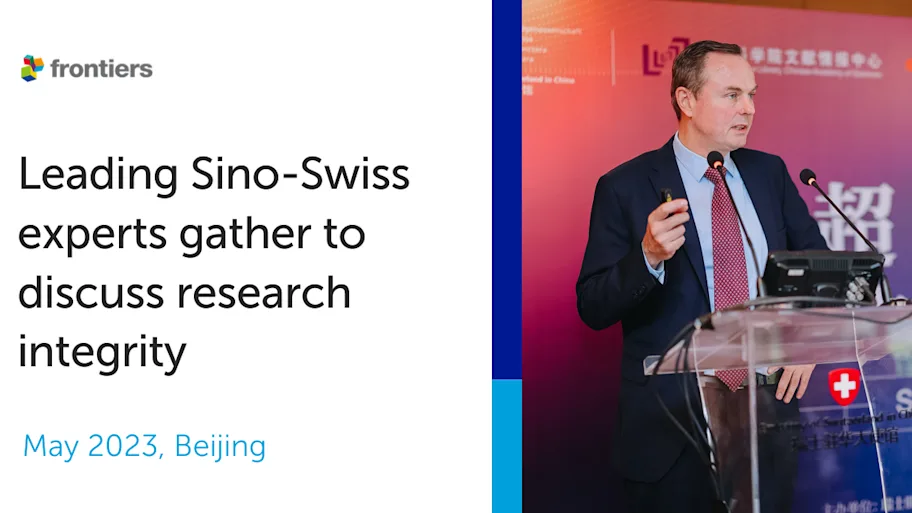
- Science news
- Featured news
- To amplify, falsify or verify? AI and published science
To amplify, falsify or verify? AI and published science
In August this year, Marie Soulière, senior publishing manager at Frontiers, featured in closing keynote discussion at the annual FORCE11 Scholarly Communication Institute. She was joined by leading voices from the Allen Institute for AI, the University of Washington, the São Paulo Research Foundation and the University of Manchester. Here are some of her personal reflections.

With ingenuity we can reverse global threats, from climate change to health emergencies. With global collaboration, political will, and scientific breakthrough at a scale not yet seen. But on all those counts, success will depend on the widespread sharing of the latest scientific knowledge. All of it.
Scale will count. We need more than incremental change. Good scientific research – published and shared globally with machine readability across large volumes of information – will grow our chances of success.
Which is where Artificial Intelligence comes in. Perhaps no other new technology has thrown up so many opportunities, and risks, for scientific research. The publication and dissemination of new science will be transformed in unimagined ways.
But to what end? To amplify, to falsify or to verify? To grow our chances of success? And which outcomes are most likely in the short and medium term? I had the pleasure of joining the keynote FORCE 11 panel discussion on these and other questions.
For over a decade the FORCE11 community group has offered researchers the new thinking, pragmatic tools, and personal tips they will need to thrive in a competitive publishing environment. Frontiers is proud to be a sponsor.
With a broad, international audience of students, publishers, developers, funders, research administrators and librarians, we ranged over the application of AI in scientific publishing. Let me briefly share four of the discussion points.
First, AI is already assisting the publishers and consumers of research. It is cutting production costs and time and augmenting the decision-making power of editors and peer reviewers. And it is closing cultural divides by translating our common store of knowledge for new audiences. Open science that is globally shared, free to read and open to all – to machines and humans alike! – is perfectly placed to reap these benefits.
Second, AI can help us shut the door on fraudulent science. Its abilities to detect falsification in publishing are substantial – whether across the integrity of figures and images, text similarity, identity theft or conflicts of interest. We can apply sophisticated AI tools to bear down misinformation, underline the integrity of peer review, and maintain the quality of the scientific record.
At Frontiers, for example, our Artificial Intelligence Review Assistant (AIRA) assesses every manuscript with over a dozen quality checks powered by AI to assist editorial teams, editors and reviewers before they decide to review, endorse, or publish.
Third, AI’s potential to corrupt data exchange might be outweighed by its ability to discover new meaning, expand interpretation, and find richer analysis in our quest for scientific insights. The growing application of generative AI across academia and scientific publishing will upend our expectations of the possible. And at its simplest level, when the routine elements of information gathering and indexing are automated, researchers will have more time for the creativity and collaboration they need to succeed.
And finally, AI has raised the need for more stringent publication ethics and widely adopted guidelines. We will need to do more to guarantee the integrity of published research. With poorly used AI tools, easy falsification, and lack of accountability, we may see an escalation of publishing output that skews incentives in academia towards quantity over quality.
Publishers must of course set high, ethical standards – with investment, training, and the application of AI – to see those standards met. When public trust in science is fragile, scientific authority comes from both the evidence and the public consensus around it. That consensus – and action – will be stronger and more sustainable when based on the latest, rigorously tested knowledge, accessible to all.
Open science will be a condition for success. Unlocking the Covid genome taught us that when we trust, open, and share research globally, we can mobilize, innovate, and save lives.
But now we need to do more. At Frontiers, we want to see all science open – so that scientists can collaborate more and innovate faster, for fairer outcomes in all parts of society. That is our social purpose as a business. We are committed to science for the many, not just the few who can afford to access it.






